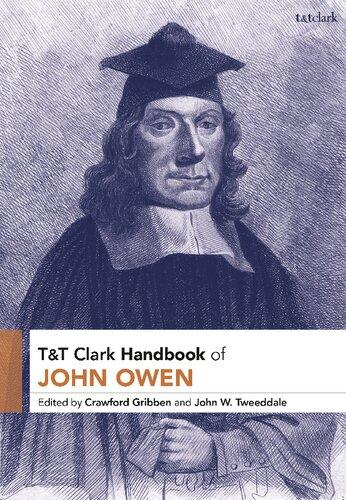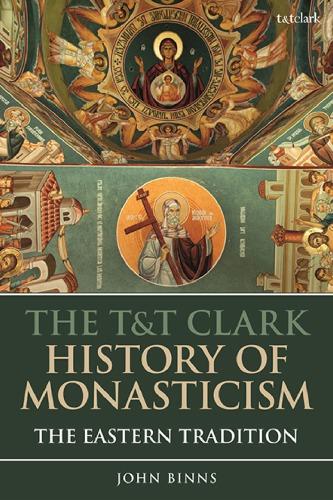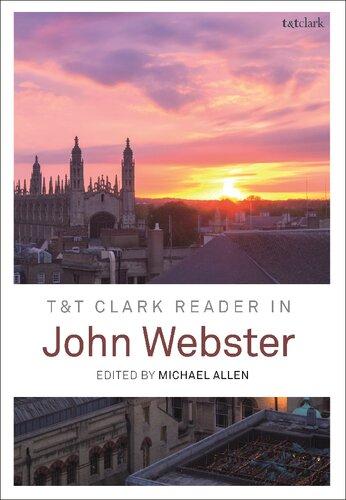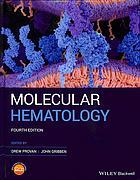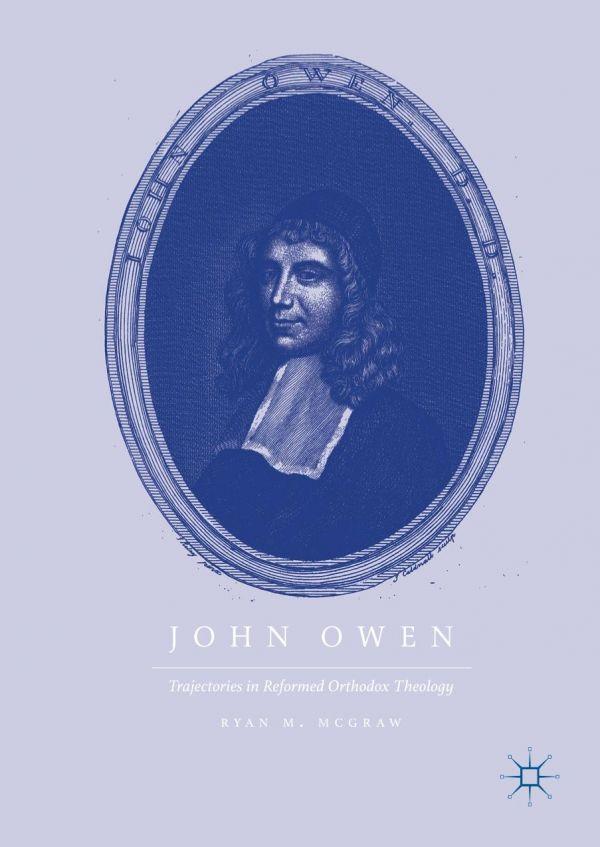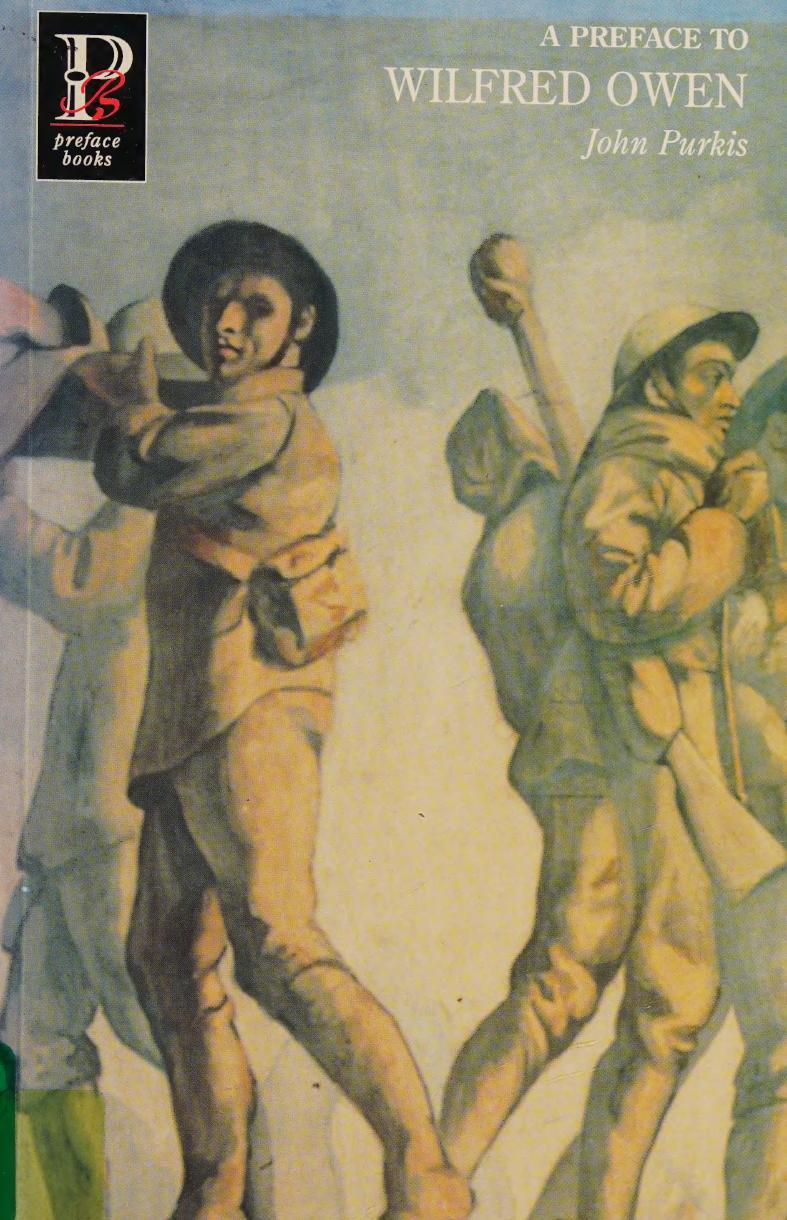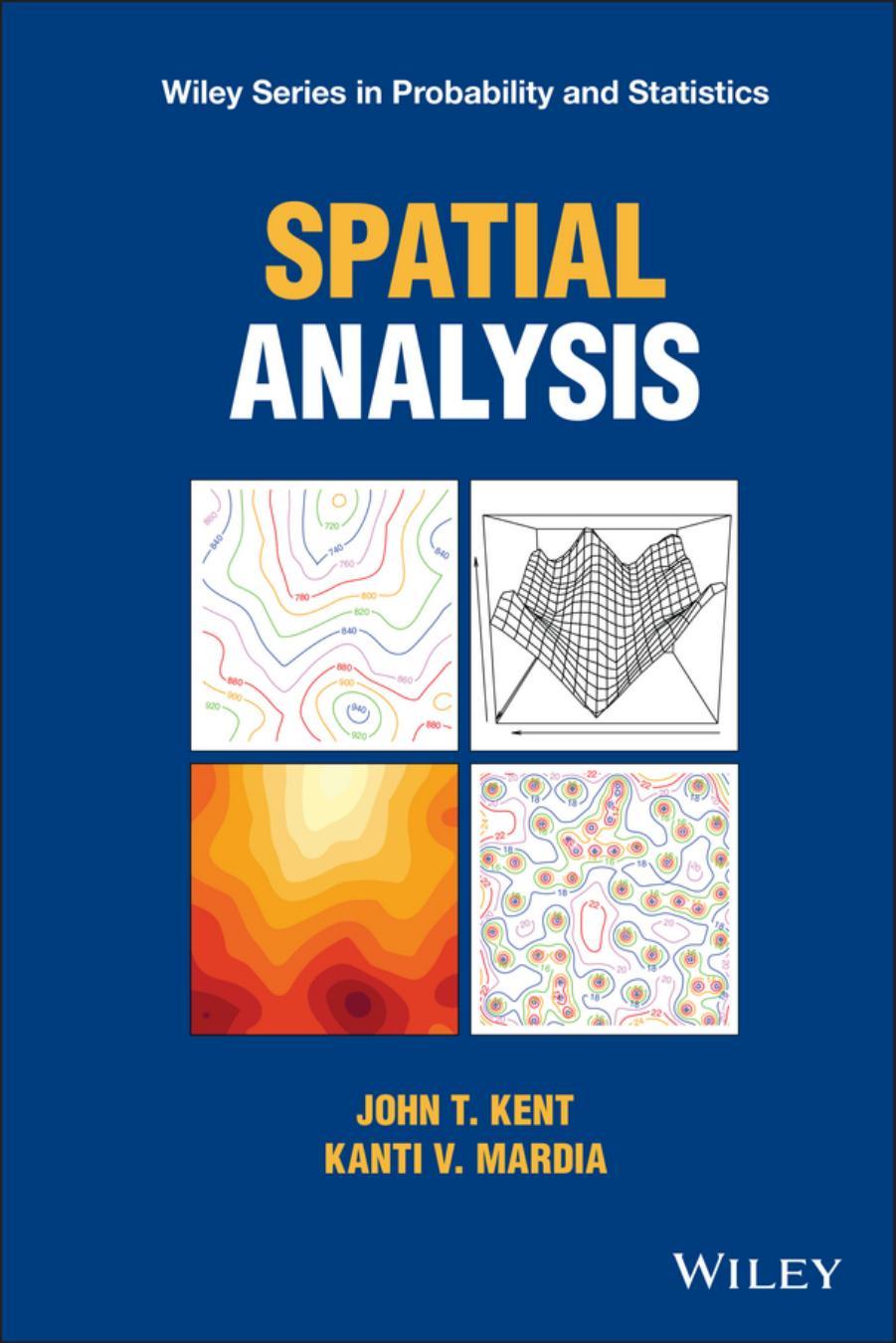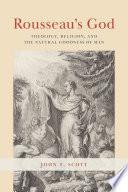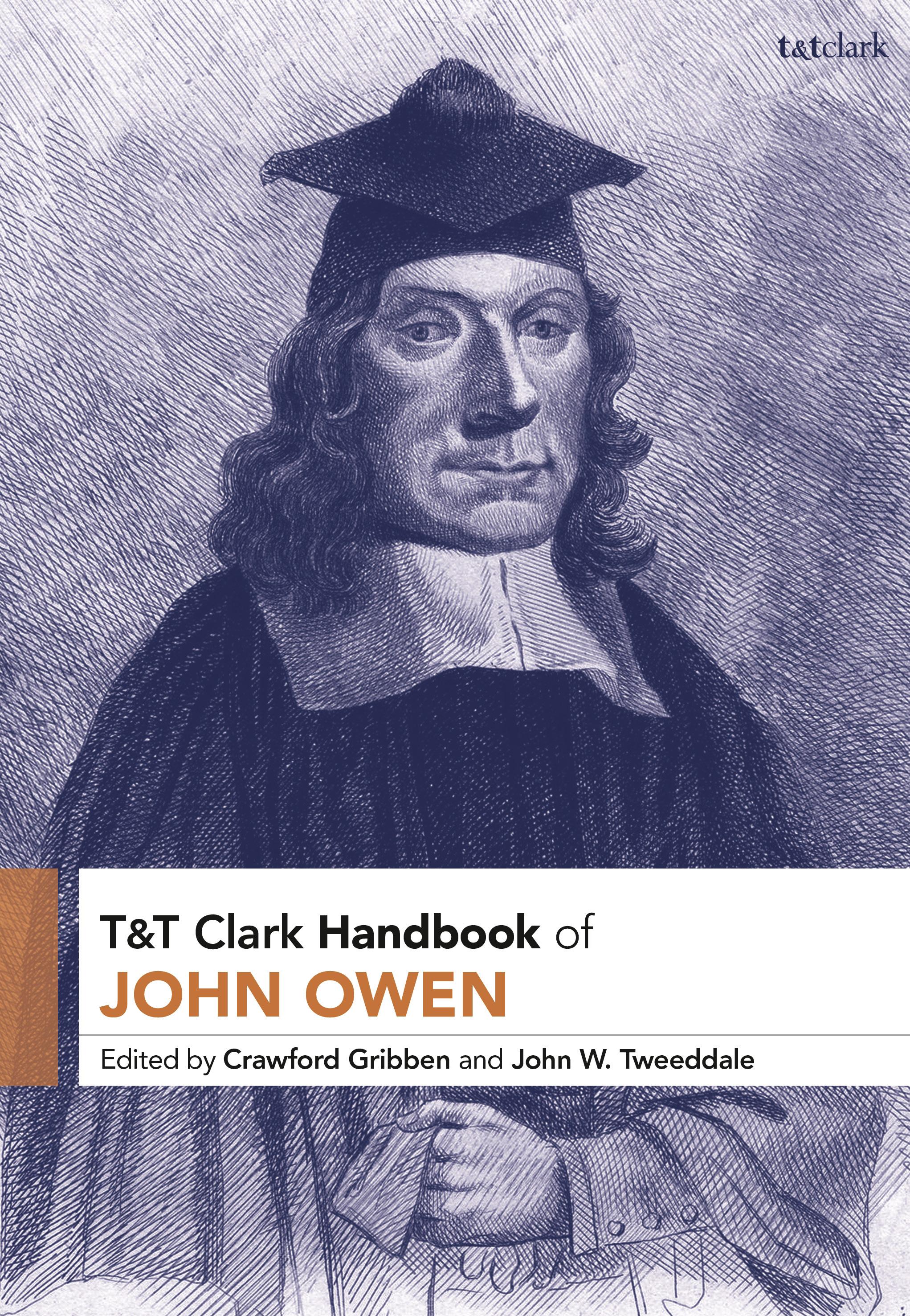ABBREVIATIONS
Note: Works are listed in chronological order.
A display of Arminianisme (1643)
The duty of pastors and people distinguished (1644)
[Theomachia autexousiastikē]: or, A display of Arminianisme. Being a discovery of the old Pelagian idol free-will, with the new goddesse contingency, advancing themselves, into the throne of the God of heaven to the prejudice of his grace, providence, and supreme dominion over the children of men. Wherein the maine errors of the Arminians are laid open, by which they are fallen off from the received doctrine of all the Reformed churches, with their opposition in divers particulars to the doctrine established in the Church of England. Discovered out of their owne writings and confessions, and confuted by the word of God (London, 1643).
The duty of pastors and people distinguished: or, A briefe discourse, touching the administration of things commanded in religion. Especially concerning the means to be used by the people of God (distinct from church-officers) for the increasing of divine knowledge in themselves and others. Wherein bounds are prescribed to their performances, their liberty is enlarged to the utmost extent of the dictates of nature and rules of charity, their duty laid down in directions, drawn from Scripture precepts, and the practice of Gods people in all ages. Together with the severall wayes of extraordinary calling to the office of publicke teaching, with what assurance such teachers may have of their calling, and what evidence they can give of it, unto others (London, 1644).
Two short catechismes (1645) The principles of the doctrine of Christ: Unfolded in two short catechismes, wherein those principles of religion are explained, the knowledge whereof is required by the late ordinance of Parliament, before any person bee admitted to the sacrament of the Lords Supper. For the use of the congregation at Fordham, in the county of Essex (London, 1645).
A vision of unchangeable free mercy (1646)
A vision of unchangeable free mercy, in sending the means of grace to undeserved sinners: wherein Gods uncontrollable eternall purpose, in sending, and continuing the Gospel unto this nation, in the middest of oppositions and contingencies, is discovered: his distinguishing mercy, in this great work, exalted, asserted, against opposers, repiners: in a sermon preached before the Honourable House of Commons, April 29, being the day of publike humiliation. Whereunto is annexed, a short defensative about church-government, (with a countrey essay for the practice of church-government there) toleration and petitions about these things (London, 1646).
Eben-ezer (1648) Eben-ezer: A memoriall of the deliverance of Essex, county, and committee, being an exposition on the first ten verses of the third chapter of the prophesie of Habakkuk in two sermons. The first preached at Colchester before his Excellency on a day of thanksgiving for the surrender thereof. The other at Rumford unto the committee who were imprisoned by the enemy Sep. 28. A day set apart unto thanksgiving for their deliverance (London, 1648).
Eshcol (1648) Eshcol: A cluster of the fruit of Canaan; brought to the borders, for the encouragement of the saints, travelling thither-ward, with their faces towards Syon. Or, rules of direction, for the walking of the saints in fellowship, according to the order of the Gospel. Collected and explained for the use of the Church at Coggeshall (London, 1648).
The death of death in the death of Christ (1648)
Salus electorum, sanguis Jesu: or, The death of death in the death of Christ. A treatise of the redemption and reconciliation that is in the blood of Christ with the merit thereof, and the satisfaction wrought thereby. Wherin the proper end of the death of Christ is asserted: the immediate effects and fruits thereof assigned, with their extent in respect of it’s object; and the whole controversie about universall redemption fully discussed in foure parts, whereof the 1. Declareth the eternall counsell, and distinct actuall concurrence of Father, Sonne, and Holy Spirit unto the worke of redemption in the blood of Christ, with the covenanted intendment, and accomplished end of God therein. 2. Removeth false and supposed ends of the death of Christ; with the distinctions invented to salve the manifold contradictions of the pretended universal atonement; rightly stating the controversie. 3. Containeth arguments against universall redemption from the word, with an affection of the satisfaction and merit of Christ. 4. Answereth all considerable objections as yet brought to light either by Arminians, or others (their late followers as to this point) in the behalfe of universall redemption; with a large unfolding of all the texts of Scripture by any produced and wrested to that purpose (London, 1648).
A sermon preached to the Honourable House of Commons, in Parliament assembled: on January 31 (1649)
Certaine treatises (1649)
A sermon preached to the Honourable House of Commons, in Parliament assembled: on January 31. A day of solemne humiliation. With a discourse about toleration, and the duty of the civill magistrate about religion, thereunto annexed. Humbly presented to them, and all peace-loving men of this nation (London, 1649).
Certaine treatises written by John Owen M.A. Sometimes of Queens College in Oxford, now pastor of the church at Coggsehall in Essex. Formerly published at severall times, now reduced into one volume, viz. 1. A display of the errours of the Arminians concerning the old Pelagian idoll free-will, &c. in 14 chapters. 2. Salus electorum sanguis Jesu. A treatise of the redemption and reconciliation that is in the blood of Christ, with the merit thereof, and the satisfaction wrought thereby; wherein the whole controversie of universall redemption is fully discussed, in foure books, in 31 chapters; with an appendix uppon accasion of a late booke published by Mr. Joshua Sprigge containing erroneous doctrine. 3. The duty of pastors and people distinguished, touching the meanes to bee used by the people (distrinct from church-officers) for encreasing of divine knowledge, prescribing, 1. The bounds of their performance. 2. The extent of their liberty according to the dictates of nature, and rules of charity. 3. Their duty according to Scripture, and practice in all ages, with the severall waies of extraordinary calling to the office of publique teaching, the assurance to be had, and the evidence to be given, of such calling, in 8. Chapters (London, 1649).
The shaking and translating of heaven and earth (1649)
The branch of the Lord, the beauty of Sion (1650)
Of the death of Christ (1650)
Ουρανων ουρανια [Ouranōn Ourania]. The shaking and translating of heaven and earth. A sermon preached to the Honourable House of Commons in Parliament assembled: on April 19. A day set apart for extraordinary humiliation (London, 1649).
The branch of the Lord, the beauty of Sion: or, The glory of the Church, in its relation unto Christ. Opened in two sermons; one preached at Berwick, the other at Edinburgh (Edinburgh, 1650).
Of the death of Christ, the price he paid, and the purchase he made. Or, the satisfaction, and merit of the death of Christ cleared, the universality of redemption thereby oppugned: and the doctrine concerning these things formerly delivered in a treatise against universal redemption vindicated from the exceptions, and objections of Mr Baxter (London, 1650).
The stedfastness of promises, and the sinfulness of staggering (1650)
The stedfastness of promises, and the sinfulness of staggering: Opened in a sermon preached at Margarets in Westminster before the Parliament Febr. 28. 1649. Being a day set apart for solemn humiliation throughout the nation (London, 1650).
The advantage of the kingdome of Christ (1651)
The labouring saints dismission to rest (1652)
The advantage of the kingdome of Christ in the shaking of the kingdoms of the world: or, Providentiall alterations in their subserviency to Christ’s exaltation. Opened, in a sermon preached to the Parliament Octob. 24. 1651. A solemne day of thankesgiving for the destruction of the Scots army at Worcester with sundry other mercies, by John Owen minister of the Gospell (Oxford, 1651).
The labouring saints dismission to rest. A sermon preached at the funeral of the Right Honourable Henry Ireton Lord Deputy of Ireland: In the Abbey Church at Westminster, the 6th day of February 1651 (London, 1652).
The primer (1652) The primer: or, An easie way to teach children the true reading of English. With a necessary catechisme, to instruct youth in the grounds of Christian religion. Also choice places of Scripture for that purpose. Composed by John Owen, minister of the Gospel. Approved and allowed by a committee of Parliament (London, 1652).
A sermon preached to the Parliament, Octob. 13. 1652 (1652)
Diatriba de justitia divina (1653)
A sermon preached to the Parliament, Octob. 13. 1652. A day of solemne humiliation. Concerning the kingdome of Christ, and the power of the civile magistrate about the things of the worship of God (Oxford, 1652).
Diatriba de justitia divina. Seu iustitiæ vindicatricis vindiciæ quibus, essentialis illa naturæ divinæ proprietas, ex Sacris Literis demonstrator, & contra Socinianos, imprimis authores catech. Racov. Io. Crellium, ipsumq; F. Socinum asseritur: nec non exercitium ejus necessarium, unà cum indispensabili satisfactionis Jesu Christi ad salutem peccatorum necessitate, adversus virorum doctiss. G. Twissi, G. Vossii, &. S. Rhetorfortis, aliorumq; impugnationes, preterea astruitnr (Oxford, 1653).
The doctrine of the saints perseverance (1654)
The doctrine of the saints perseverance, explained and confirmed. Or, the certain permanency of their 1. Acceptation with God, & 2. Sanctification from God. Manifested & proved from the 1. Eternal principles 2. Effectuall causes 3. Externall meanes thereof. In, 1. The immutability of the 1. Nature 2. Decrees 3. Covenant and 4. Promises of God. 2. The oblation and intercession of Jesus Christ. 3. The 1. Promises 2. Exhortations 3. Threats of the Gospell. Improved in its genuine tendency to obedience and consolation. And vindicated in a full answer to the discourse of Mr John Goodwin against it, in his book entituled Redemption redeemed. With some digressions concerning 1. The immediate effects of the death of Christ. 2. Personall indwelling of the Spirit. 3. Union with Christ. 4. Nature of Gospell promises, &c. also a preface manifesting the judgement of the antients concerning the truth contended for: with a discourse touching the epistles of Ignatius; the Episcopacy in them asserted; and some animadversions on Dr. H.H. his dissertations on that subject (Oxford, 1654).
Vindiciae evangelicae (1655)
Vindiciae evangelicae, or, The mystery of the Gospell vindicated, and Socinianisme examined, in the consideration, and confutation of a catechisme, called a Scripture Catechisme, written by J. Biddle M.A. and the Catechisme of Valentinus Smalcius, commonly called the Racovian Catechisme. With the vindication of the testimonies of Scripture, concerning deity and satisfaction of Jesus Christ, from the perverse expositions, and interpretations of them, by Hugo Grotius in his Annotations on the Bible. Also an appendix, in vindication of some things formerly written about the death of Christ, & the fruits thereof, from the animadversions of Mr. R.B (Oxford,1655).
Of the mortification of sinne in believers (1656)
A review of the annotations of Hugo Grotius (1656)
God’s work in founding Zion (1656)
God’s presence with a people (1656)
Of communion with God (1657)
Of the mortification of sinne in believers: The necessity, nature, and meanes of it. With a resolution of sundry cases of conscience, thereunto belonging (Oxford, 1656).
A review of the annotations of Hugo Grotius, in reference unto the doctrine of the deity, and satisfaction of Christ. With a defence of the charge formerly laid against them (Oxford, 1656).
God’s work in founding Zion, and his peoples duty thereupon. A sermon preached in the Abby Church at Westminster, at the opening of the Parliament Septemb. 17th 1656 (Oxford, 1656).
God’s presence with a people, the spring of their prosperity; with their speciall interest in abiding with Him. A sermon, preached to the Parliament of the Commonwealth of England, Scotland, and Ireland, at Westminster, Octob. 30. 1656. A day of solemn humiliation (London, 1656).
Of communion with God the Father, Sonne, and Holy Ghost, each person distinctly; in love, grace, and consolation: or, The saints fellowship with the Father, Sonne, and Holy Ghost, unfolded (Oxford, 1657).
Of schisme (1657) Of schisme. The true nature of it discovered and considered, with reference to the present differences in religion (Oxford, 1657).
A review of the true nature of schisme (1657)
An answer to a later treatise of Daniel Cawdrey about the nature of schisme (1658)
A review of the true nature of schisme, with a vindication of the congregationall churches in England, from the imputation thereof unjustly charged on them by Mr D. Cawdrey, preacher of the Word at Billing in Northampton-shire (Oxford, 1657).
An answer to a later treatise of Daniel Cawdrey about the nature of schisme. In John Cotton, A defence of Mr. John Cotton from the imputation of selfe contradiction, charged on him by Mr. Dan. Cawdrey written by himselfe not long before his death. Whereunto is prefixed, an answer to a late treatise of the said Mr. Cawdrey about the nature of schisme. By John Owen: D.D. (Oxford, 1658).
Of temptation (1658)
Pro Sacris Scripturis (1658)
Of the divine originall (1659)
Of temptation, the nature and power of it. The danger of entring into it. And the meanes of preventing the danger. With a resolution of sundry cases thereunto belonging (Oxford, 1658).
Pro Sacris Scripturis adversus hujus tempom Fanaticos exercitaliones apologeticae Quatuor fanaticos (London, 1658).
Of the divine originall, authority, self-evidencing light, and power of the Scriptures. With an answer to that enquiry, how we know the Scriptures to be the word of God. Also a vindication of the purity and integrity of the Hebrew and Greek texts of the Old and New Testament; in some considerations on the prolegomena, & appendix to the late Biblia polyglotta. Whereunto are subjoyned some exercitations about the nature and perfection of the Scripture, the right of interpretation, internall Light, revelation, &c. (Oxford, 1659).
The glory and interest of nations professing the Gospel (1659)
Two questions (1659)
The glory and interest of nations professing the Gospel. Opened in a sermon preached at a private fast, to the Commons assembled in Parliament. Published by their command (London, 1659).
Unto the questions sent me last night, I pray accept of the ensuing answer, under the title of two questions concerning the power of the supream magistrate about religion, and the worship of God; with one about tythes, proposed and resolved (London, 1659).
Θɛoλoγoʋµɛνα παντoδαπα (1661) Θɛoλoγoʋµɛνα παντoδαπα [Theologoumena pantodapa]. Sive de natura, ortu, progressu, et studio veræ theologiæ libri sex. Quibus etiam origines & processus verì & falsi cultus religiosi, casus & instaurationes ecclesiæ illustriores ab ipsis rerum primordiis, enarrantur. Accedunt digressiones De grati universali. Scientiarum ortu. Ecclesiæ Romanæ notis. Literarum origine. Antiquis literis Hebraicis. Punctatione Hebraica. Versionibus SS. Ritibus Judaicis. Aliísque (Oxford, 1661).
Animadversions on Fiat lux (1662)
Animadversions on a treatise intituled Fiat lux: or, A guide in differences of religion, between Papist and Protestant, Presbyterian and Independent. By a Protestant (London, 1662).
A discourse concerning liturgies (1662)
A vindication of the animadversions on Fiat lux (1664)
A discourse concerning liturgies, and their imposition (London, 1662).
A vindication of the animadversions on Fiat lux. Wherein the principles of the Roman church, as to moderation, unity and truth are examined: And sundry important controversies concerning the rule of faith, papal supremacy, the mass, images, &c. discussed (London, 1664).
Indulgence and toleration considered (1667)
A peace-offering (1667)
A brief instruction in the worship of God (1667)
Indulgence and toleration considered. In a letter unto a person of honour (London, 1667).
A peace-offering in an apology and humble plea for indulgence and liberty of conscience. By sundry Protestants differing in some things from the present establishment about the worship of God (London, 1667).
A brief instruction in the worship of God, and discipline of the churches of the New Testament, by way of question and answer with an explication and confirmation of those answers (London, 1667).
Hebrews (1668) Exercitations on the Epistle to the Hebrews also concerning the Messiah. Wherein the promises concerning him to be a spiritual redeemer of mankind are explained and vindicated. His coming and accomplishment of his work according to the promises is proved and confirmed. The person, or who he is, is declared. The whole oeconomy of the Mosaical law, rites, worship, and sacrifice is explained. And in all, the doctrine of the person, office, and work of the Messiah is opened; the nature and demerit of the first sin is unfolded; the opinions and traditions of the antient and modern Jews are examined; their objections against the Lord Christ and the Gospel are answered; the time of the coming of the Messiah is stated: And the great fundamental truths of the Gospel vindicated. With an exposition and discourses on the two first chapters of the said epistle to the Hebrews (London, 1668).
Indwelling sin (1668)
A practical exposition on the 130th Psalm (1669)
Truth and innocence vindicated (1669)
A brief declaration and vindication of the doctrine of the Trinity (1669)
The nature, power, deceit, and prevalency of the remainders of indwelling-sin in believers. Together with the wayes of its working, and means of prevention. Opened, evinced and applyed, with a resolution of sundry cases of conscience thereunto appertaining (London, 1668).
A practical exposition on the 130th Psalm. Wherein the nature of the forgiveness of sin is declared, the truth and reality of it asserted. And the case of a soul distressed with the guilt of sin, and relieved by a discovery of forgiveness with God, is at large discoursed (London, 1669).
Truth and innocence vindicated: In a survey of a discourse concerning ecclesiastical polity; and the authority of the civil magistrate over the consciences of subjects in matters of religion (London, 1669).
A brief declaration and vindication of the doctrine of the Trinity: As also of the person and satisfaction of Christ. Accommodated to the capacity and use of such as may be in danger to be seduced, and the establishment of the truth (London, 1669).
An account of the grounds and reasons on which Protestant dissenters desire liberty (1670)
An account of the grounds and reasons on which Protestant dissenters desire liberty (London, 1670).
Sabbath (1671) Exercitations concerning the name, original, nature, use, and continuance of a day of sacred rest. Wherein the original of the Sabbath from the foundation of the world, the morality of the fourth commandment, with the change of the seventh day are enquired into. Together with an assertion of the divine institution of the Lord’s Day, and practical directions for its due observation (London, 1671).
A discourse concerning evangelical love, church-peace and unity (1672)
A vindication of some passages (1674)
Πνευματολογια (1674)
A discourse concerning evangelical love, church-peace and unity. With the occasions and reasons of present differences and divisions about things sacred and religious. Written in the vindication of the principles and practise of some ministers and others (London, 1672).
A vindication of some passages in a discourse concerning communion with God, from the exceptions of William Sherlock, rector of St. George Buttolph-Lane (London, 1674).
[Pneumatologia]: or, A discourse concerning the Holy Spirit. Wherein an account is given of his name, nature, personality, dispensation, operations, and effects. His whole work in the old and new creation is explained; the doctrine concerning it vindicated from oppositions and reproaches. The nature also and necessity of Gospel-holiness; the difference between grace and morality, or a spiritual life unto God in evangelical obedience and a course of moral vertues, are stated and declared (London, 1674).
Hebrews (1674) Exercitations on the epistle to the Hebrews, concerning the priesthood of Christ. Wherein the original, causes, nature, prefigurations, and discharge of that holy office, are explained and vindicated. The nature of the covenant of the redeemer, with the call of the Lord Christ unto his office, are declared. And the opinions of the Socinians about it are fully examined, and their opposition unto it refuted. With a continuation of the exposition on the third, fourth, and fifth chapters of said epistle to the Hebrews (London, 1674).
The nature of apostasie (1676)
The doctrine of justification by faith (1677)
The reason of faith (1677)
The nature of apostasie from the profession of the Gospel, and the punishment of apostates declared, in an exposition of Heb. 6. 4, 5, 6. With an enquiry into the causes and reasons of the decay of the power of religion in the world; or the present general defection from the truth, holiness and worship of the Gospel. Also, of the proneness of churches and persons of all sorts unto apostasie. With remedies and means of prevention (London, 1676).
The doctrine of justification by faith through the imputation of the righteousness of Christ, explained, confirmed, & vindicated (London, 1677).
The reason of faith. Or, an answer unto that enquiry, wherefore we believe the Scripture to be the word of God. With the causes and nature of that faith wherewith we do so. Wherein the grounds whereon the Holy Scripture is believed to be the word of God with faith divine and supernatural, are declared and vindicated (London, 1677).
The causes, waies & means of understanding the mind of God (1678) Σύνεσις πνευματική [Synesis pneumatikē]: or, The causes, waies & means of understanding the mind of God as revealed in his word, with assurance therein. And a declaration of the perspicuity of the Scriptures, with the external means of the interpretation of them (London, 1678).
Χριστολογια (1679) Χριστολογια [Christologia]: or, A declaration of the glorious mystery of the person of Christ, God and Man. With the infinite wisdom, love, and power of God in the contrivance and constitution thereof. As also of the grounds and reasons of his incarnation, the nature of his ministry in heaven, the present state of the church above thereon; and the use of his person in religion. With an account and vindication of the honour, worship, faith, love, and obedience due unto him, in and from the church (London, 1679).
The Church of Rome, no safe guide (1679)
Some considerations about union among Protestants (1680)
A brief vindication of the nonconformists (1680)
The Church of Rome, no safe guide. Or, reasons to prove that no rational man, who takes due care of his own eternal salvation, can give himself up unto the conduct of that church in matters of religion (London, 1679).
Some considerations about union among Protestants, and the preservation of the interest of the Protestant religion in this nation (London, 1680).
A brief vindication of the non-conformists from the charge of schism. As it was managed against them in a sermon preached before the Lord Mayor by Dr. Stillingfleet, Dean of St. Pauls (London, 1680).
Hebrews (1680) A continuation of the exposition of the Epistle of Paul the Apostle to the Hebrews viz, on the sixth, seventh, eight, ninth, and tenth chapters. Wherein together with the explication of the text and context, the priesthood of Christ by those of Melchizedek and Aaron, with an account of their distinct offices, the nature and efficacy of the sacrifice of Christ, as typed by all the sacrifices of the law, the erection of the tabernacles according to the heavenly patter; with the institution of all its utensils and services, their especial signification and end, the nature and differences of the two covenants, the old and the new, with the preference of the latter above the former, the reasons and necessity of the taking away and abolishing of the old legal worship annexed unto the covenant of Sinai, and the means whereby it was removed, the glorious administration of the mediatory office of Christ in heaven, and sundry other evangelical truths of the highest importance, with the duty of believers in hearing the word in times of trial and persecution; the means and danger of apostacy from the profession of the Gospel, are declared, explained and confirmed: as also, the pleas of the Jews for the continuance and perpetuity of their legal worship, with the doctrine of the principal writers of the Socinians about these things, are examined and disproved (London, 1680).
An enquiry into evangelical churches (1681)
An humble testimony (1681)
An enquiry into the original, nature, institution, power, order and communion of evangelical churches. The first part with an answer to the discourse of the unreasonableness of separation written by Dr. Edward Stillingfleet, Dean of Pauls, and in defence of the vindication of non-conformists from the guilt of schisme (London, 1681).
An humble testimony unto the goodness and severity of God in his dealing with sinful churches and nations. Or, the only way to deliver a sinful nation from utter ruine by impendent judgments, in a discourse on the words of our Lord Jesus Christ, Luk. 13, 1, 2, 3, 4, 5 (London, 1681).
The grace and duty of being spiritually-minded (1681)
A discourse of the work of the Holy Spirit in prayer (1682)
A brief and impartial account of the nature of the Protestant religion (1682)
[Phronēma tou pneumatou]: or, The grace and duty of being spiritually-minded, declared and practically improved (London, 1681).
A discourse of the work of the Holy Spirit in prayer. With a brief enquiry into the nature and use of mental prayer and forms (London, 1682).
A brief and impartial account of the nature of the Protestant religion: Its present state in the world, its strength and weakness, with the ways and indications of the ruine or continuance of its publick national profession. By a Protestant (London, 1682).
The chamber of imagery in the Church of Rome laid open (1683)
Meditations and discourses on the glory of Christ (1684)
The chamber of imagery in the Church of Rome laid open. In A continuation of morning exercises questions and cases of conscience, practically resolved by sundry ministers (London, 1683).
Meditations and discourses on the glory of Christ, in his person, office, and grace, with the differences between faith and sight. Applied unto the use of them that believe (London, 1684).
Hebrews (1684) A continuation of the exposition of the Epistle of Paul the Apostle to the Hebrews viz, on the eleventh, twelfth & thirteenth chapters, compleating that elaborate work: wherein, together with the explication of the text and context: the efficacy and operation of faith in them that are justified, with respect unto constancy in their profession in times of persecution: several special duties, necessary unto a due compliance with an exhortation unto constancy and perseverance: a cogent argument to the same purpose taken from a comparison between the two states, of the law and the Gospel; with their original, nature, and effects: the reasons for abolishing the mosaical ceremonies drawn from the necessity of one altar and sacrifice, and the nature of the Christian’s altar and sacrifice: are declared, explained and confirmed. With an index of the Scriptures explained in this volume: as also a table of the principal matters therein contained. Together with a table to the third volume, preceding this: and an index of Scriptures explained in the same. By the late eminent and faithful servant of Jesus Christ, John Owen, D.D (London, 1684).
Bibliotheca Oweniana (1684)
A treatise of the dominion of sin and grace (1688)
The true nature of a Gospel church and its government (1689)
Bibliotheca Oweniana, sive catalogus librorum plurimus facultatibus insignium, instructissimae bibliothecae Rev. Doct. Vir. D. Joan Oweni, (quondam Vice-Cancellarii & Decani EdisChristi in Academia Oxoniensi) nuperrimè defuncti, cum variis manuscriptis Grecis, Latinis &c. propria manu doct. patric. junii aliorumq conscriptis, quorum auctio habebitur Londini apud domum auctionariam ex adverso Nigri Cygni, in vico vulgò dicto Ave-Mary-Lane, propè Ludgate-Street, vicesimo sexto die Maii, 1684, ed. Edward Millington (London, 1684).
A treatise of the dominion of sin and grace. Wherein sin’s reign is discovered, in whom it is, and in whom it is not. How the law supports it, how grace delivers from it, by setting up its dominion in the heart (London, 1688).
The true nature of a Gospel church and its government: Wherein these following particulars are distinctly handled. I. The subject matter of the church. II. The formal cause of a particular church. III. Of the polity, rule or discipline of the church in general. IV. The officers of the church. V. The duty of pastors of churches. VI. The office of teachers in the church. VII. Of the rule of the church, or of ruling elders. VIII. The nature of church polity or rule, with the duty of elders. IX. Of deacons. X. Of excommunication. XI. Of the communion of churches. The publishing whereof was mentioned by the author in his Answer to the unreasonableness of separation (London, 1689).
Seasonable words for English Protestants (1690)
Meditations and discourses concerning the glory of Christ (1691)
A guide to churchfellowship and order (1692)
Seasonable words for English Protestants. A sermon, from Jer. 51.5. Setting forth, 1. When a land is filled with sin? 2. What evidences we have that England is not forsaken yet by God? And 3. What is required of us, that we may not be given up to destruction (London, 1690).
Meditations and discourses concerning the glory of Christ applyed unto unconverted sinners, and saints under spiritual decayes: in two chapters, from John XVII, xxiv (London, 1691).
A guide to church-fellowship and order. According to the Gospelinstitution: Wherein these following particulars are distinctly handled: I. The necessity of believers to joyn themselves in churchorder, II. The subject matter of the church, III. The continuation of a church-state, and of the administration of evangelical ordinances of worship, briefly vindicated, IV. What sort of churches the disciples of Christ may and ought to joyn themselves unto as unto entire communion (London, 1692).
Two discourses concerning the Holy Spirit, and his work (1693)
Gospel grounds and evidences of the faith of God’s elect (1695)
Two discourses concerning the Holy Spirit, and his work. The one, of the Spirit as a comforter. The other, as He is the author of spiritual gifts. In the former discourse these particulars are distinctly handled. Chap. I. The Holy Ghost the comforter and advocate of the church. Chap. II. General adjuncts or properties of the office of a comforter. Chap. III. Unto whom the Holy Spirit is a comforter. Chap. IV. Of the inhabitation of the Spirit. Chap. V. Actings of the Spirit as a comforter. How he is an unction. Chap. VI. The Spirit a seal, and how. Chap. VII The Spirit an earnest, and how (London, 1693).
Gospel grounds and evidences of the faith of God’s elect: Shewing, I. The nature of true saving faith, in securing of the spiritual comfort of believers in this life, is of the highest importance, II. The way wherein true faith doth evidence itself in the soul and consciences of believers, unto their supportment and comfort, under all their conflicts with sin, in all their tryals and temptations, III. Faith will evidence it self, by a diligent, constant endeavour to keep it self and all grace in due exercise, in all ordinances of divine worship, private and publick, IV. A peculiar way whereby true faith will evidence it self, by bringing the soul into a state of repentance (London, 1695).
An answer unto two questions (1720)
An answer unto two questions: by the late judicious John Owen, D.D. With Twelve arguments against any conformity to worship, not of divine institution (London, 1720).
Seventeen sermons (1720)
Seventeen sermons preach’d by the late Reverend and learned John Owen, D. D. Sometime vice-chancellor of the University of Oxford, and dean of Christ-Church. Being all the sermons of his that ever were printed: With the dedications preceding each sermon. 2 volumes (London, 1720).
A complete collection of the sermons of the Reverend and learned John Owen (1721)
The works of the late Reverend and learned John Owen (1721)
A complete collection of the sermons of the Reverend and learned John Owen, D.D. Formerly published: with an addition of many others never before printed. Also several valuable tracts, now first published from manuscripts: and some others, which were very scarce. To which are added his Latin Orations, whilst vicechancellor of Oxford, taken from his own copies. And to the whole are prefix’d memoirs of his life: some letters written by him upon special occasions: and his funeral sermon, preach’d by Mr. David Clarkson (London, 1721).
The works of the late Reverend and learned John Owen, D.D. Sometime vice-chancellor of the University of Oxford, and dean of Christ-Church: Containing several scarce and valuable discourses, (viz.) I. A declaration of the glorious mystery of the person of Christ, God and man. II. Of communion with God the Father, Son, and Holy Ghost. III. Of in-dwelling sin in believers. IV. Of temptation; the nature and power of it. V. Of mortification of sin in believers. VI. Of the death of Christ, the price he paid, and purchase he made. With a display of Arminianism. First published in the Doctor’s life-time; and now collected together in one volume; being very useful for families. To which is prefixed the doctor’s effigies curiously engraven. Recommended by several Learned and Judicious Divines (London, 1721).
Thirteen sermons (1756)
Twenty-five discourses suitable to the Lord’s Supper (1760)
Thirteen sermons preached on various occasions. By the Reverend and learned John Owen, D.D. Of the last Age. Never Before Printed (London, 1756).
Twenty-five discourses suitable to the Lord’s Supper, delivered just before the administration of that sacred ordinance (London, 1760).
Hebrews (1790) An exposition of the epistle to the Hebrews; with the preliminary exercitations, by John Owen, D. D., revised and abridged, with a full and interesting life of the author, 4 vols., ed. Edward Williams (London, 1790).
Hebrews (1812) An exposition of the epistle to the Hebrews, with the preliminary exercitations, 7 vols., ed. George Wright (Edinburgh, 1812–14).
Works (1826) The works of John Owen, 21 vols., ed. Thomas Russell (London: Paternoster, 1826).
Evangelical theology (1837)
Evangelical theology: A translation of the sixth book of Dr. Owen’s Latin work entitled Theologoumena, trans. John Craig (Edinburgh, 1837).
Works (1850) The works of John Owen, 24 vols., ed. William H. Goold (London, 1850–55).
Works (1965 or 1991)
The correspondence of John Owen
The Oxford orations
Biblical theology
The works of John Owen, 16 vols., ed. William H. Goold (Edinburgh: Banner of Truth, vols. 1–16 in 1965; and vols. 17–23 [on Hebrews] in 1991).
The correspondence of John Owen (1616–1683): With an account of his life and work, ed. Peter Toon (Cambridge: James Clarke, 1970).
The Oxford orations of Dr. John Owen, ed. Peter Toon (Cornwall: Gospel Communications, 1971).
Biblical theology: The history of theology from Adam to Christ, trans. Stephen P. Westcott (Morgan, PA: Soli Deo Gloria, 1994).
One aim of this handbook is to standardize abbreviations and citations for Owen’s writings. All citations to Owen’s writings are first given in their original seventeenth-century form (with the date of the primary source in parenthesis) followed by the corresponding reference in the standard 24-volume Goold edition of Owen’s works (1850–5). Volumes 1–17 in the Goold edition include Owen’s general works, while volumes 18–24 contain Owen’s commentary on Hebrews. References to this edition are given as Works (1850), with only the first year of publication given in parenthesis, representing the entire series. However, references to the Goold edition in secondary literature are often complicated due to the Banner of Truth Trust’s reprinting, reordering and renumbering certain volumes of the original Goold edition. Due to the omission of Owen’s Latin works in volumes 16 and 17 of the Goold edition, the Banner reprint consolidated the English works in both these volumes into a newly arranged volume 16. As a result, the Banner edition also renumbered the Hebrews volumes but preserved the original pagination of the Goold edition. Therefore, volumes 18–24 of the Goold edition correspond to volumes 17–23 in the Banner edition. Throughout the handbook, volumes 1–16 in the Banner edition are given as Works (1965), while volumes 17–23 of the Banner edition are given as Works (1991) – once again with only the first year of publication given in parenthesis. The relationship between the Goold and Banner editions can be seen as follows:
Goold edition
Volumes 1–17 of Works (1850) = Owen’s general works, including his Latin writings in volumes 16 and 17.
Banner edition
Volumes 1–16 of Works (1965) = Owen’s general works, excluding Owen’s Latin writings and with a newly arranged volume 16. However, volumes 1–15 in the Banner edition are an exact reprint of the Goold edition.
Volumes 18–24 of Works (1850) = Owen’s commentary on Hebrews.
Volumes 17–23 of Works (1991) = Owen’s commentary on Hebrews. Although the volumes have been renumbered, the contents are an exact reprint of the Goold edition.
Here are examples of how these citations will be used in the handbook:
● Owen, Χριστολογια (1679), 107–11; Works (1850), 1:100–3.
● Owen, Χριστολογια (1679), 107–11; Works (1965), 1:100–3.
● Owen, Θɛoλoγoʋµɛνα παντoδαπα (1661), 128 (lib. 2, cap. 1); Works (1850), 17:135 (2.1.4).
● Owen, Hebrews (1668), 86 (1.8.1); Works (1850), 18:142.
● Owen, Hebrews (1668), 86 (1.8.1); Works (1991), 17:142.
